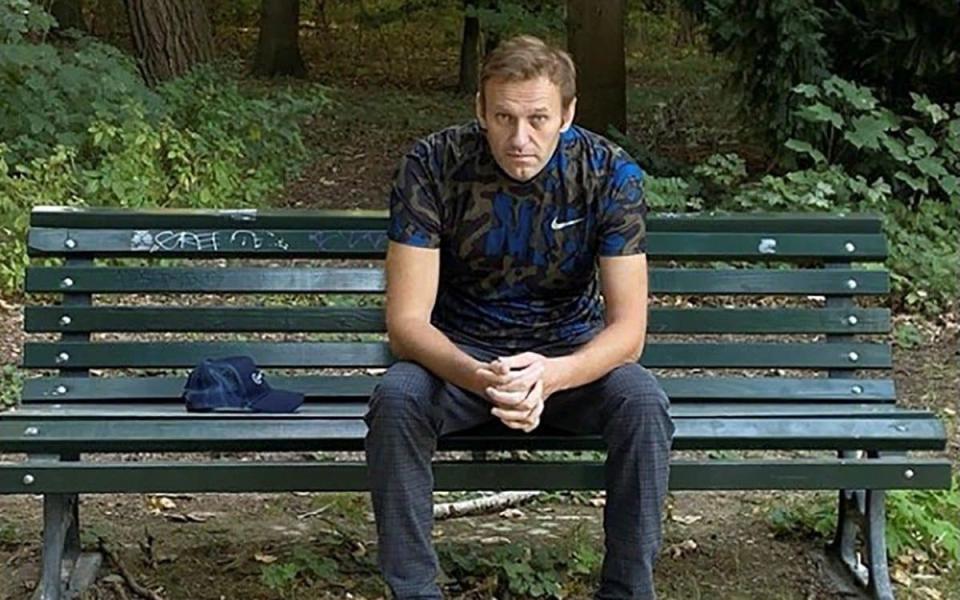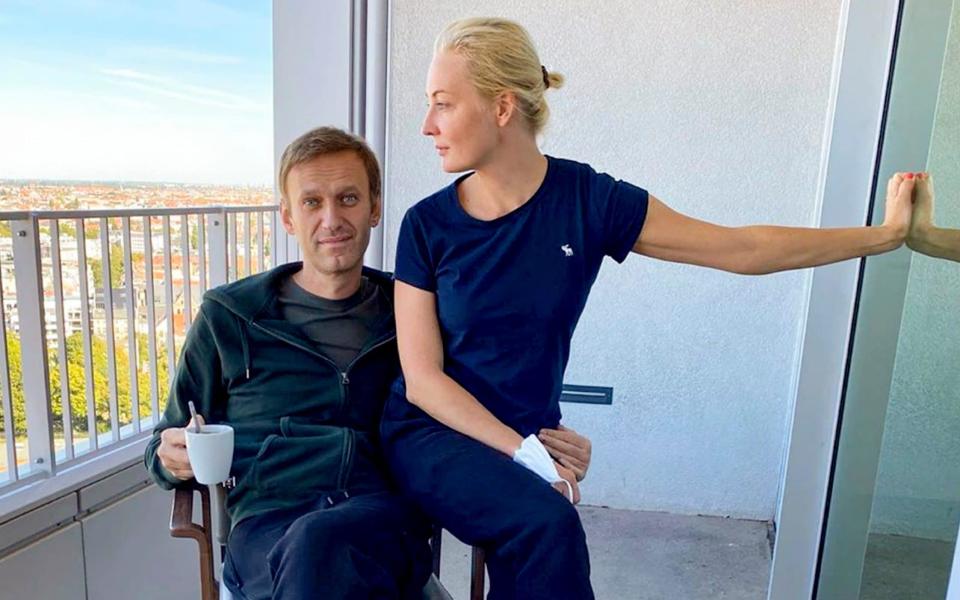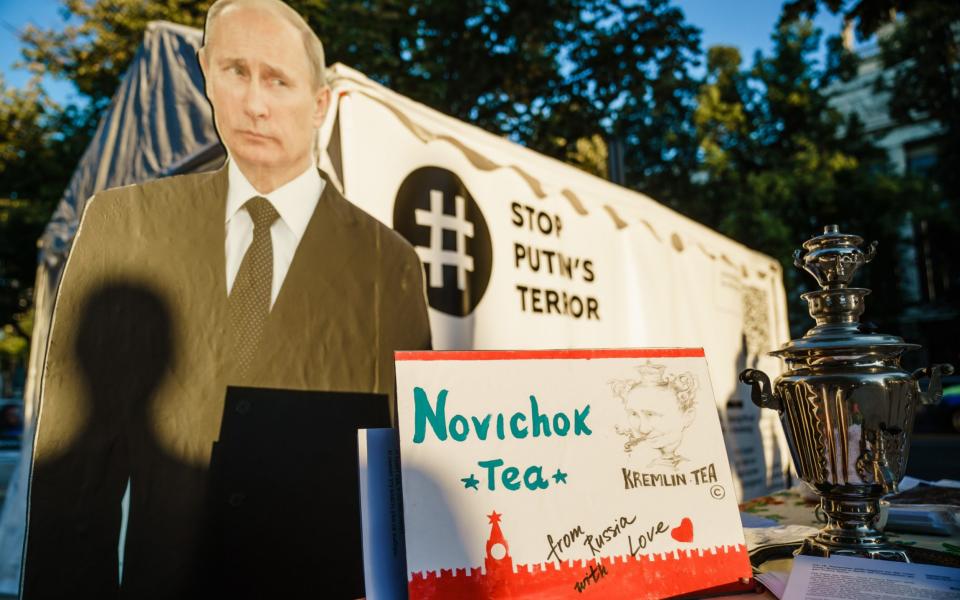Alexei Navalny "free to return" to Russia after being discharged from German hospital

Opposition leader Alexei Navalny is "free to return" to Russia after he was discharged from a German hospital following weeks in a coma, the Kremlin said on Wednesday.
After being taken to intensive care for a nerve agent poisoning in August, Mr Navalny has now recovered enough to be released from inpatient care, the Charite hospital in Berlin said in a statement on Wednesday.
German doctors also mentioned for the first time that they now believe that “complete recovery is possible” for the Russian opposition leader while adding that it was too early to talk about potential long-term damage to his health from the poisoning.
Asked about the opposition leader's potential return, Kremlin spokesman Dmitry Peskov told Russian news agencies on Wednesday that there were no obstacles for Mr Navalny to go back to Russia.
"In terms of his return to Moscow, he is free to do it at any moment like any other Russian citizen," Mr Peskov said.
Mr Navalny earlier on Wednesday posted the first photograph of himself out of the hospital on his Instagram account.
Pictured on a bench in the woods, a visibly frail Mr Navalny said that the first thing he asked his family to do after leaving hospital was to “take me somewhere with trees.”
“That day has come - hurrah! - and doctors at the hospital have decided after 32 days that my recovery now requires a normal life instead of inpatient care,” the Russian politician wrote.

His spokesman Kira Yarmysh told the Telegraph that Mr Navalny is staying in Germany for the time being for rehabilitation before his planned return to Russia.
The 44-year old opposition leader fell suddenly ill on a plane from Siberia to Moscow in late August and spent two days in a Siberian hospital before the medication evacuation to Germany.
Several European laboratories have independently confirmed that Mr Navalny was poisoned with the Soviet-era nerve agent Novichok, which was used in the 2018 attack on former Soviet spy Sergei Skripal and his daughter.
Mr Navalny in his Instagram post on Wednesday described his immediate plans as “walk, spend time with my family, do physiotherapy every day, possibly a rehabilitation centre.”

The Russian politician, who started walking again only a few days ago, has yet to work on his balance, movement and muscle memory and “regain control of my fingers.” He thanked the German doctors for their “incredible work.”
Mr Navalny, who originally came to prominence as an anti-corruption activist, spearheaded massive anti-Kremlin protests in 2011 and has since built an impressive network of allies and supporters across Russia.
After winning more than a quarter of votes in the 2013 Moscow mayoral elections, he mounted a presidential campaign ahead of the 2018 elections only to be barred from running because of two suspended sentences against him.
His campaign has galvanised opposition supporters across the country in the most tangible threat to President Putin’s rule.
Most recently, candidates endorsed by Mr Navalny’s movement won a sizable number of seats in several regional parliaments, shattering the years-long dominance of the ruling pro-Kremlin party.
Russian government officials have gone back and forth, either denying that he ever was poisoned or insisting that it was only after he was evacuated to Germany that the traces of poison was found in his body.
The French newspaper Le Monde in a rare leak published on Tuesday cited unnamed sources saying that Mr Putin told French President Emmanuel Macron in a recent phone call that Mr Navalny may have poisoned himself.
The opposition leader responded by a pity Instagram post: “I cooked up Novichok in the kitchen, took a sip from the bottle on the plane and fell into a coma,” he said.
“Putin… is hard to fool. In the end, I spent 18 days in a coma like an idiot but never achieved my goal.”
Mr Peskov, the Kremlin spokesman, confirmed on Wednesday that the two leaders discussed Mr Navalny but insisted that the French newspaper was “imprecise in its wording” of the remarks made by the Russian leader.
Although Russia never launched a criminal investigation into the poisoning, Kremlin spokesman Dmitry Peskov on Tuesday accused Mr Navalny’s associates of tampering with evidence by removing items from his hotel room shortly after he got sick.
Mr Navalny’s team revealed last week that traces of Novichok were found on the water bottles they had taken from his room and sent to Germany for tests.

